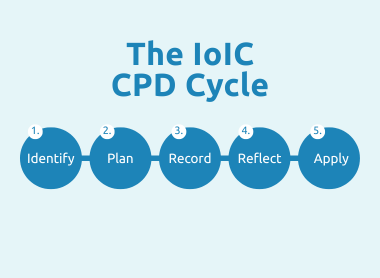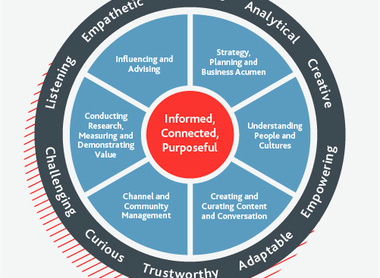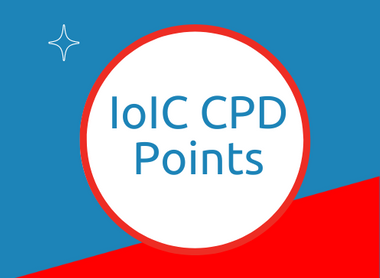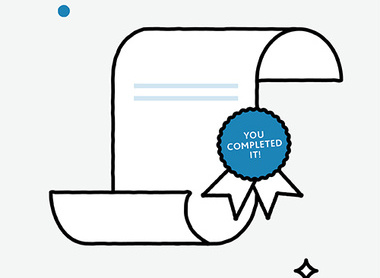What counts as CPD?
CPD is any learning activity you undertake to support your professional development. Our Activity Points Chart provides guidance on activities and how many points each is worth.
Improve your skills, develop your knowledge and drive your career growth.
Continuing Professional Development (CPD) is the learning you undertake as a professional, helping you to maintain and advance your knowledge, skills and practice. CPD is an investment in your career growth, empowering you to enhance your proficiency and direct your progression.
The IoIC's CPD Programme provides a framework to help structure and focus learning and development. IoIC members can also manage their CPD via a dedicated online portal where they can record learning and track their progress.
Key aspects to the IoIC's approach to CPD:
The IoIC believes that continuing professional development (CPD) is fundamental to the development of individuals, teams and the IC profession as a whole.
Some key benefits of CPD include:

CPD is any learning activity you undertake to support your professional development. Our Activity Points Chart provides guidance on activities and how many points each is worth.

The IoIC's CPD Cycle provides a structured approach to continuing professional development with five simple steps.

Benchmark your skills and knowledge against the Profession Map. Use the Map to chart your career progression and achieve your goals.

The IoIC offers a wide range of resources and learning to help you build skills, knowledge and confidence.

We recommend that you aim complete at least 40 CPD Points worth of learning per year.
Record your learning as CPD.

View and download your CPD report.
If you've achieved 40 or more points in the last year you can also request your certificate of completion.
Access opportunities for professional growth, advancement and recognition with the IoIC.
Please accept {{cookieConsents}} cookies to view this content
